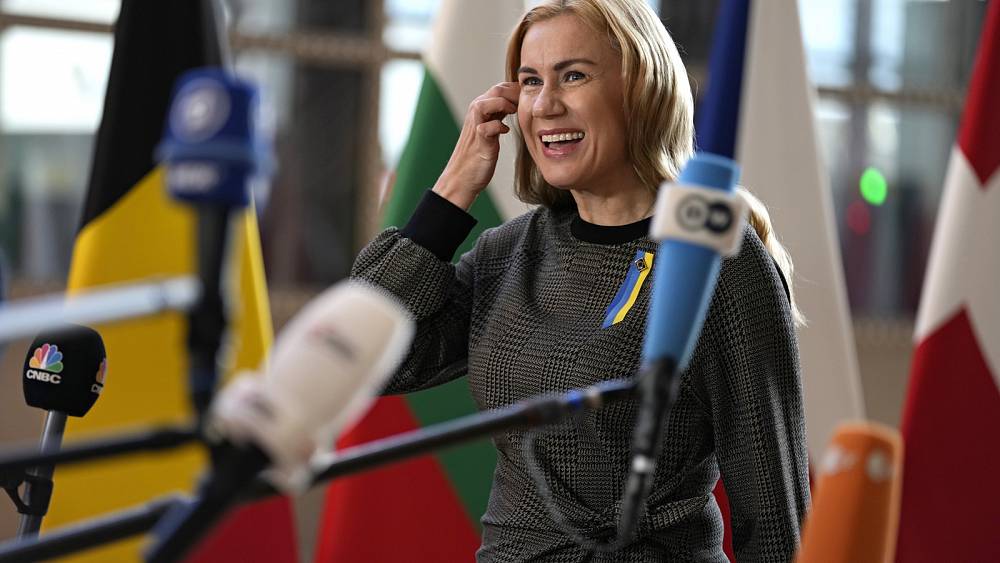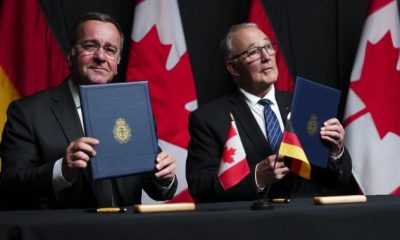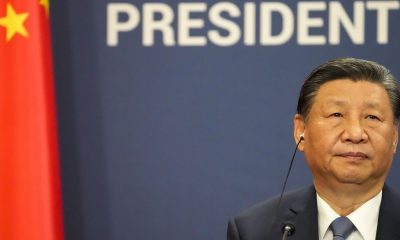General News
EU approves mandatory energy savings and cap on company revenues

EU energy ministers approved on Friday a first package of emergency measures in an effort to curb soaring electricity bills and coordinate member states’ responses to the energy crisis.
The package, negotiated in less than a month, includes mandatory power savings, a cap on excess market revenues and a levy to capture surplus corporate profits.
It comes as inflation in the eurozone hit double digits – 10% – for the first time in the history of the single currency, primarily driven by skyrocketing energy bills.
With the extraordinary measures, the EU intends to both reduce electricity consumption during peak hours to rebalance the supply-demand mismatch and seize part of the revenues that power plants and fossil fuel companies have made due to high prices.
After a short discussion on Friday morning, ministers reached a deal and kept the core substance of the package mostly intact, with amendments focused on flexibility and practical implementation.
The three measures are all time-limited and cover:
- An EU-wide plan to introduce power savings: a mandatory 5% target during peak hours, when gas plays a bigger role in price-setting, and a voluntary 10% reduction in overall electricity demand.
- A cap on the excess revenues made by power plants that do not use gas to produce electricity, such as solar, wind, nuclear, hydropower and lignite. The cap will be uniform and set at €180 per megawatt-hour. All revenues that exceed the barrier will be collected by governments.
- A solidarity mechanism to partially capture the surplus profits made by fossil fuel companies (oil, gas and coal). Authorities will be able to impose a 33% levy on the profits made by these companies in the 2022 fiscal year – but only if the profits represent a 20% increase compared to the average seen in the last three years.
The extra funds obtained through the second and third instrument will be re-directed to households and companies under financial stress in the form of subsidies, reduced tariffs or income support.
Countries that have already established similar solutions at the national level will be allowed to continue their schemes if they pursue the same goals as the EU’s package.
While the package represents a decisive step forward in the EU’s reaction to the energy crisis, further action is needed, said Jozef Síkela, the Czech Republic’s minister for industry and trade.
The country holds the EU Council’s rotating presidency and is tasked with moderating the debate.
“We must not stop here. We are in an energy war with Russia. The winter is coming. We need to act now. Now means now,” Síkela told reporters ahead of the meeting.
His French counterpart, Agnès Pannier-Runacher, echoed the call. “Let me be very clear: we will have to go much faster, much further and make other proposals,” she told reporters.
The missing gas cap
Following the package’s approval, ministers discussed the next possible steps in their joint response to the energy crisis.
All eyes are on an initiative to impose a price cap on all gas imports entering the EU, regardless of geographical origin, and all gas transactions taking place in the single market.
The unprecedented measure has gained traction across the bloc and was this week endorsed by a group of 15 member states, including France, Italy, Spain and Belgium.
“This cap is the priority,” the countries wrote in their joint letter, which doesn’t provide technical details.
As the most expensive fuel to meet all power demands, gas sets the final price of electricity, even where cheaper and greener sources contribute to the total mix.
By capping gas prices, electricity bills will be artificially contained, the signatories believe.
The European Commission remains hesitant and sees the idea as radical and highly risky, Euronews understands. Despite growing calls, the executive has not yet submitted a legislative draft that can be negotiated by ministers.
“We’re disappointed with the Commission’s non-proposal,” said Teresa Ribera, Spain’s minister for the ecological transition. “The Commission is aware this is a sensitive topic and has not managed to find the space in which all countries can respond positively [to a proposal].”
Germany, the EU’s industrial powerhouse and largest gas consumer, is opposed to the horizontal price cap, fearing a disruption of supplies. Estonia, Luxembourg and Austria have also expressed concerns.
Ahead of the meeting, German Vice-Chancellor Robert Habeck said the EU should use its market power “wisely” to set up joint procurement of gas supplies and collectively bring down prices.
In a document published on the eve of the meeting, the Commission explained that a price cap on all gas imports would upend market forces and require the establishment of a new “entity” to ensure a fair and uninterrupted distribution of supplies among the 27 member states.
“Deciding on gas flows administratively is without precedent in Europe and there is currently nobody at EU level (…) which has this experience and technical capability to undertake this task,” the document reads.
Instead, the Commission suggested a more targeted and time-limited cap on the gas used to produce electricity, although concrete details around this option are so far scarce.
“Different member states do expect different solutions but the Commission has to present an idea that has overall broad support,” Kadri Simon, European Commissioner for energy, said on Friday.
Simson insisted the focus should be on a price cap exclusively on Russian gas, which most member states have already dismissed, and bilateral negotiations with the EU’s leading suppliers, such as Norway and Algeria.
A diplomat from a country that does not support the horizontal price cap said the measure could incentivise gas consumption at a time when savings have become crucial. The diplomat said it was “not clear” what the 15 countries were asking for in their joint letter.
“They all seem to have a different idea about what a price cap is,” the official said. “The Commission’s proposal [of a targeted cap] doesn’t seem very attractive either. We’re not going to be the ones asking for it.”
Simone Tagliapietra, a senior fellow at the Bruegel think tank, said the proposed price cap would bump into the “complexities” of the gas market and leave Europe “worse off.”
“Today’s measures represent a good compromise solution to maintain price signals for demand reduction while unlocking resources that countries can use to lower energy bills of families and businesses,” Tagliapietra told Euronews.
“But it is not sufficient to fix all problems we have of course. We really have no silver bullet here. We need a mix of solutions to get out of the woods.”
This article has been updated to include new reactions and developments.
























